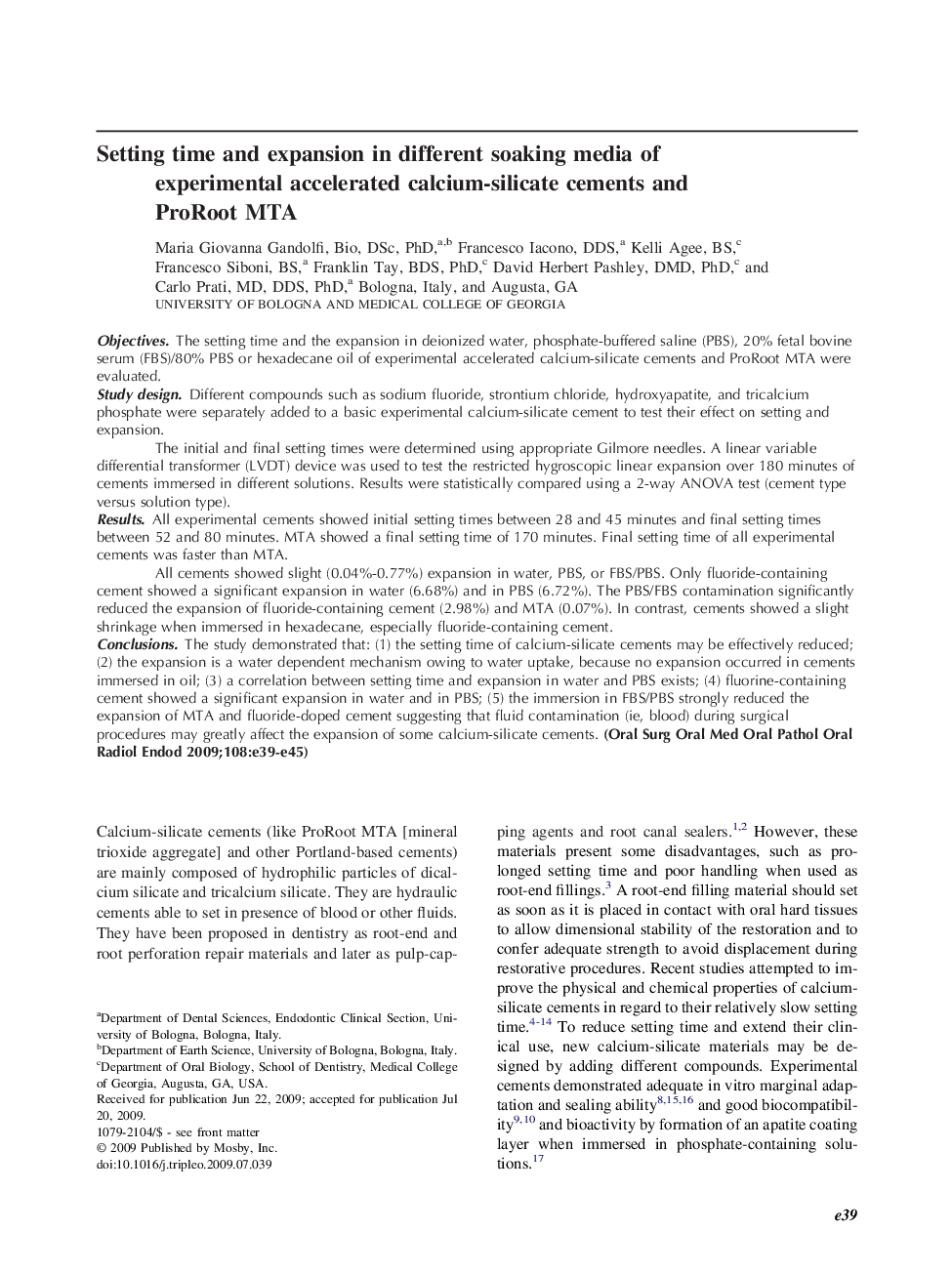| Article ID | Journal | Published Year | Pages | File Type |
|---|---|---|---|---|
| 3167801 | Oral Surgery, Oral Medicine, Oral Pathology, Oral Radiology, and Endodontology | 2009 | 7 Pages |
ObjectivesThe setting time and the expansion in deionized water, phosphate-buffered saline (PBS), 20% fetal bovine serum (FBS)/80% PBS or hexadecane oil of experimental accelerated calcium-silicate cements and ProRoot MTA were evaluated.Study designDifferent compounds such as sodium fluoride, strontium chloride, hydroxyapatite, and tricalcium phosphate were separately added to a basic experimental calcium-silicate cement to test their effect on setting and expansion.The initial and final setting times were determined using appropriate Gilmore needles. A linear variable differential transformer (LVDT) device was used to test the restricted hygroscopic linear expansion over 180 minutes of cements immersed in different solutions. Results were statistically compared using a 2-way ANOVA test (cement type versus solution type).ResultsAll experimental cements showed initial setting times between 28 and 45 minutes and final setting times between 52 and 80 minutes. MTA showed a final setting time of 170 minutes. Final setting time of all experimental cements was faster than MTA.All cements showed slight (0.04%-0.77%) expansion in water, PBS, or FBS/PBS. Only fluoride-containing cement showed a significant expansion in water (6.68%) and in PBS (6.72%). The PBS/FBS contamination significantly reduced the expansion of fluoride-containing cement (2.98%) and MTA (0.07%). In contrast, cements showed a slight shrinkage when immersed in hexadecane, especially fluoride-containing cement.ConclusionsThe study demonstrated that: (1) the setting time of calcium-silicate cements may be effectively reduced; (2) the expansion is a water dependent mechanism owing to water uptake, because no expansion occurred in cements immersed in oil; (3) a correlation between setting time and expansion in water and PBS exists; (4) fluorine-containing cement showed a significant expansion in water and in PBS; (5) the immersion in FBS/PBS strongly reduced the expansion of MTA and fluoride-doped cement suggesting that fluid contamination (ie, blood) during surgical procedures may greatly affect the expansion of some calcium-silicate cements.
